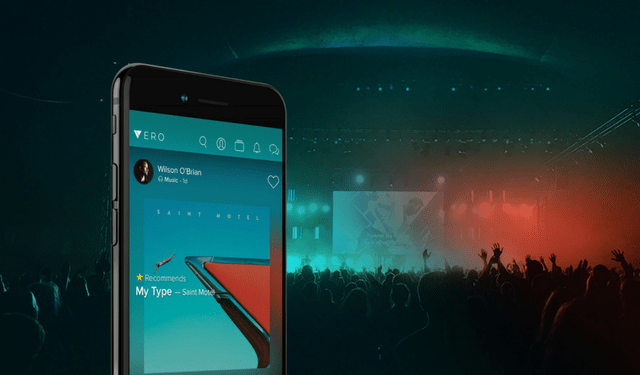
Vero’s manifesto
Vero is the latest network in a series of channels we have seen in the past years like Ello and Google Plus. All initiatives have tried to offer an alternative to Facebook, Instagram and Twitter. While many of them failed, the big interest in Vero reveals a tipping point on the variety of social media networks we will use.
The reason for Vero’s recent peak in popularity is probably driven by its positioning around advertising and data mining. Vero has been around since 2015 and its positioning has been clear since the start – they will not sell user data or push advertising. Vero wants you to join so that you can share what you want to share with who you want to share it with. No ads, no algorithms deciding what you should see first and – most importantly – no data mining. See Vero’s manifesto about their mission and promises.
It feels like this manifesto and Vero’s sudden popularity is a reaction to the recent debates following Facebook’s latest algorithm changes. Agencies, brands and consumers have been exploring what this means and if other networks could take advantage. During recent industry events, attendees even spoke of how Twitter has begun driving a lot more referral traffic, following Facebook’s changes.
Same same, but different
Next to Facebook’s algorithm changes, the big social networks have been copying each other. We see Snapchat’s way of posting temporary video’s being copied by Instagram and Facebook. But the biggest impact is the way networks like Facebook, Instagram, Twitter and LinkedIn are looking for ways to manage your feed.
The most common complaint about all these changes? The social networks are not about having fun anymore. They’re just about the money. To me personally, this happened with Instagram. I loved the way that my feed was just about cool pictures of people I follow. It was a relief compared to the likes of Facebook and LinkedIn where I was also confronted with updates of likes, comments and suggestions from friends and connections.
But, following Instagram’s acquisition by Facebook, the visual network has (also) been putting posts from ‘total strangers’ right into your feed. The argument is that Instagram makes ‘recommendations’ based upon your feed and connections. Next up was the introduction of a feed that was not built chronologically but based on ‘relevance’, i.e. another way to introduce an advertising model.
Users, investors and advertisers stepping up criticism
Social networks have been copying each other’s features and business models in their drive to be the biggest network. Money and dominance takes priority over user experience. Activists call upon consumers to push back on the power of tech giants with initiatives like time well spent.
But it’s not only users have been withdrawing from social networks. According to Pivotal Research analysis of Nielsen data done by Business Insider, the amount of time people spent on Facebook declined 4% year-over-year (measured in November 2017). This coincided with decline in referral traffic, as mentioned before.
Big advertisers are also questioning the Mammon like ambition of social networks to monetize everything without much regulation. Unilever, the world’s biggest spender of advertising cash, is threatening to pull its ads from social networks if they are not willing to change their attitudes and behaviors when it comes to topics such as racism, hate and the lack of protection to children.
The recent fierce scrutiny to social networks certainly helped spike Vero’s sudden popularity but, more importantly, it shows that change is on its way in this industry. I’m curious to see who will follow with a new and disruptive model – the existing Goliaths or a new David.
For the latest on social media, browse our blog posts!



